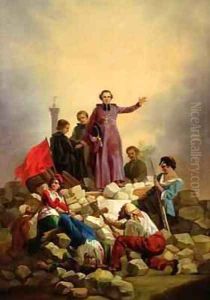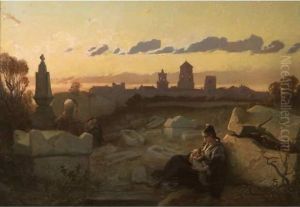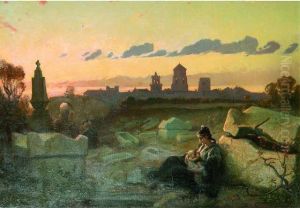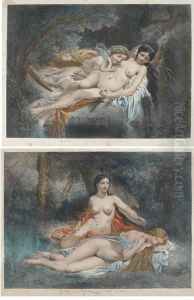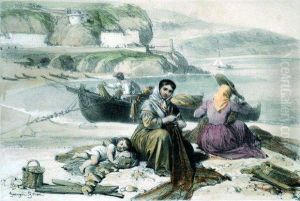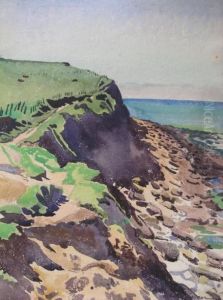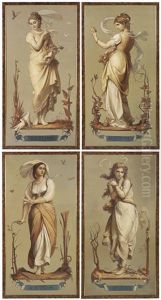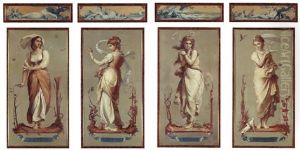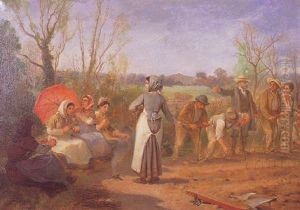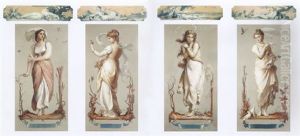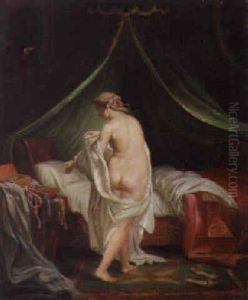Joseph Felon Paintings
Joseph Felon was a French painter known for his historical and genre paintings. Born on October 22, 1818, in Bordeaux, France, Felon showed an early interest in art and was initially trained by his father, who was a picture restorer. He went on to study at the École des Beaux-Arts in Paris, where he was a student of influential painters such as Paul Delaroche and Michel Martin Drolling.
Felon's work was characterized by a meticulous approach to detail and a penchant for scenes inspired by history and literature. He was particularly influenced by the Romantic movement, which was at its peak during his formative years as an artist. This is reflected in the emotional depth and dramatic storytelling found in his paintings. Felon's oeuvre includes works that depict moments from ancient history, as well as scenes from more contemporary literary works.
His career was marked by his participation in the Paris Salons, where he exhibited regularly from 1843 onwards. Felon's paintings received critical acclaim, and he won several awards, including a second-class medal in the 1851 Salon for his work 'Velleda', which depicted a scene from the opera by Louis Niedermeyer. Despite his success, Joseph Felon did not gain the same level of lasting fame as some of his contemporaries.
Joseph Felon's artistic legacy may not be as widely recognized today as that of some of his peers, but his contributions to French painting during the 19th century remain notable. His works are part of several museum collections, and they continue to be studied for their representation of Romanticism and their historical and literary subject matter. Felon passed away on March 22, 1896, in Paris, leaving behind a body of work that still garners appreciation from art historians and enthusiasts.
